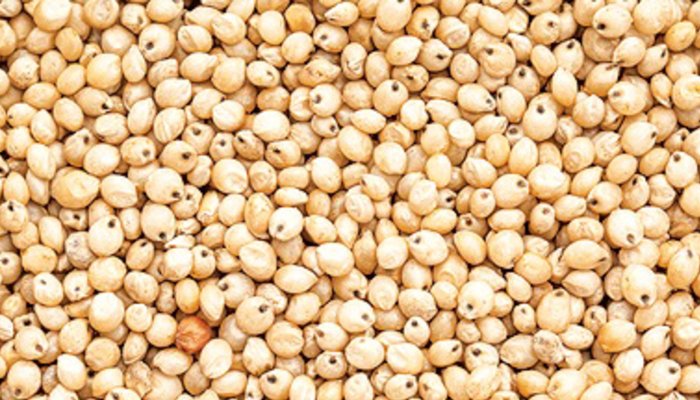What Is Sorghum? Nutrition, Health Benefits, & Ways To Use It

Sorghum is a healthy whole grain packed with fiber, protein, and a variety of micronutrients.
It grows in red, bronze, yellow, tan, white, or black clusters atop stalks throughout the so-called “sorghum belt” of the U.S.—a line of states stretching from South Dakota to Texas. In fact, though it’s not always a regular menu item or home-cooked side, more sorghum is grown in the United States than in any other country.
That said, this plant originated in Northern Africa, where its roots stretch back (literally and figuratively) to 8,000 B.C. Along with foods like amaranth, quinoa, and chia, its lengthy history earns sorghum the title of an “ancient” grain.
Never tried sorghum? You’re in for a nutty, earthy, chewy treat. The individual grains can be cooked to create a side dish much like quinoa (though they do take longer to soften up). You can drop sorghum into soups and stews, pack it into burger-like patties, or use it as the base of a tasty grain bowl.
Sorghum is naturally gluten-free, so it’s a great choice for people with trouble digesting gluten. Besides its versatility as an everyday food, sorghum is also used to make sorghum molasses, some alcohols, and livestock feed.
The other bonus: sorghum’s sustainability. It’s extremely efficient at using sunlight and water, which makes it tolerant to drought and helps conserve natural resources. The National Sorghum Producers have even trademarked it as The Resource Conserving Crop™.
